What is cyberpunk, if that question has brought you here it means that you have probably read or seen something that caught your attention. Cyberpunk is a term derived from Cyberpunk, and is a subgenre of science fiction. If you don’t like science fiction, don’t worry, science fiction doesn’t like cyberpunk either, indeed, vilified and ignored, it’s considered something like the badass son of the family, who everyone says is dead, but everyone is afraid he’ll show up again for Christmas Eve dinner.
If I had to summarize in a few words what cyberpunk is, I would say that it talks about a dystopian future, where a massive social underclass lives subjugated by an elite of large multinationals (called corporations or mega-corporations), and where technology is present in all areas. Despite being set in very decadent environments, where there is a high level of technology and psychological and physical violence, most of the plots of the great cyberpunk works have to do with the human soul, immortality and transhumanism. It is difficult to describe precisely what cyberpunk is because although its origin is literary, it soon transcended literature to other cultural manifestations, such as cinema, music, art or fashion.
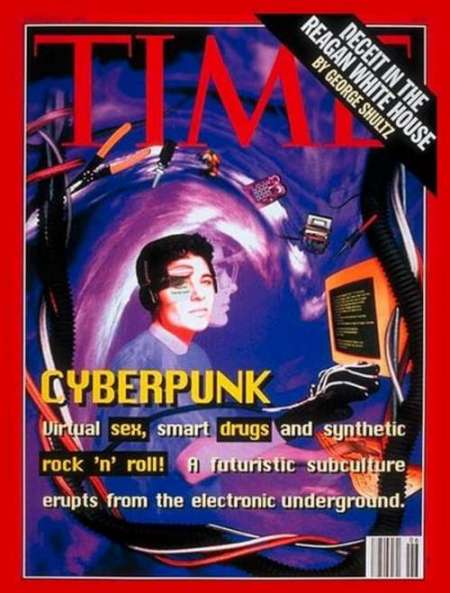
In cyberpunk most of the stories are set in the not too distant future, just two or three centuries ahead, and where man has not yet reached the stars, and may not even have colonized the solar system. This is especially important as it means that man is trapped on a planet that is overpopulated, polluted and in many cases, tired of fighting. Cyberpunk always incorporates a deep critique of capitalism, very much hidden among its vigorous plots and shady characters. Social criticism, although disguised, is omnipresent in the most important works of the genre. Cyberpunk usually takes place in large, densely populated and visually overloaded cities, mixing 20th century architecture with futuristic architecture, thus highlighting the difference between two clearly differentiated social classes: the world of the megacorporations and the rest.
The origin of cyberpunk
Writer Bruce Bethke coined the term in 1980 and it quickly spread to a group of writers in the 1980s who are known as the fathers of cyberpunk: William Gibson, Bruce Sterling, Pat Cadigan, John Shirley and Rudy Rucker. The most important of all, Gibson, wrote the first novel of the genre: “Neuromancer“and completed it with two more, “Count Zero“ y “Mona Lisa Accelerated“in what he called “The Sprawl Trilogy”.which are, for me, and this is a personal opinion, the pure essence of cyberpunk and the starting point of everything that has been developed afterwards. I wrote not long ago a small guide on how to start reading Cyberpunk, in case you are more interested in the literary part.

Many writers of this genre incorporate thriller plots in their works, adding neologisms to support the creation of a highly technological society with major social changes. The truth is that there are two very important things that differentiate a dystopian novel of the near future with a cyberpunk novel: the rawness of its characters, their experiences and the pessimistic tinge of the atmosphere recreated and the use of technology to highlight human misery. Gibson’s novels have nothing to do with the science fiction you may have read, because he himself, although fond of science fiction, had very different literary influences. Suffice it to say, the beginning of his debut film, Neuromancer, could have been the beginning of one of Ginsberg’s poems.
Going back to what cyberpunk is, we could sum it up with the words of another author of that 80’s generation, Bruce Sterling, and his own definition of what cyberpunk is:
Anything that can be done to a rat can be done to a human. And we can do almost anything to rats. It is hard to think about this, but it is the truth. Covering our eyes will not change this. This is cyberpunk.
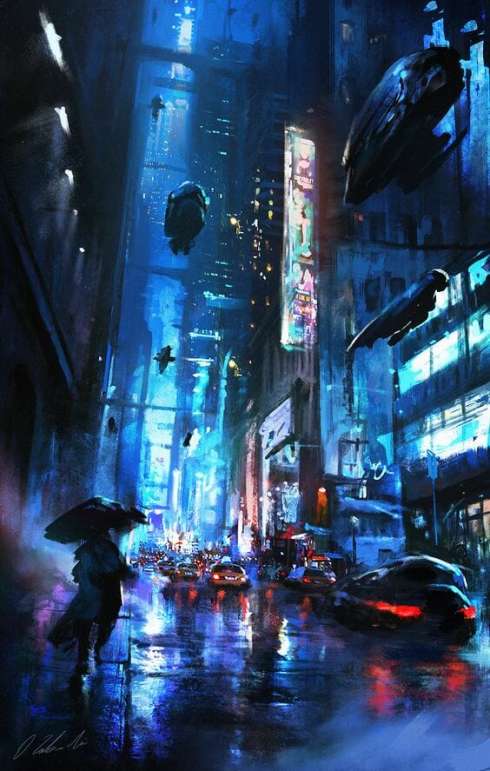
Characteristic elements of cyberpunk
There are many characteristic aspects of the genre. The first of all is the concept of the Internet (or the network). It is important to understand that when Neuromancer was written, the Internet did not exist. Cyberpunk is science fiction conceived with a late 1970s mindset, by writers with no computer skills, but who have created concepts such as the internet (the network), hackers and virtual reality. Other elements that cannot be missing to understand what cyberpunk is, are megacorporations and artificial intelligences.
Megacorporations are large multinationals, whose power far exceeds that of governments and who are the de facto organizers of the world. Most of the time they do not operate as a capitalist system, where there is competition, but as a global oligopoly. These monstrous corporations have their own armies and control politics through their global economic power. They do not even try to camouflage themselves as a shadow power, but exercise visible and brutal power over society. For all intents and purposes, they can be said to function as a post-capitalist feudalism, with rights over the life and death of their vassals.
Artificial intelligence is usually always associated with purely computational elements, without a physical representation. That is to say, artificial intelligence is in the network, in some ethereal point, pure software, although in some works, it transcends the physical, existing a symbiosis between the machine and the biological. It is unusual to see androids in classic cyberpunk works, but new cyberpunk trends, especially in television, have added this element to the genre’s imagery.
Virtual worlds and virtual reality are closely linked to artificial intelligences and the omnipresence of the network in society. Most of the time, access to virtual worlds is through a device known as a neurolink, which allows the human consciousness to be connected to the network, directly through a connection with the brain. This can be seen visually in works such as Johnny Mnemonic or Matrix (although the latter is not a typical cyberpunk work).
The underworld and its use of technology. We are talking about illegal drugs, body enhancements (cybernetic implants), prostitution, slavery in different forms and armed violence. They are the sauce that spices up this thick soup that represents cyberpunk.
The sum of all these aspects, in its exact point, including a bit of poetry and disaffection, is collected in a phrase that summarizes very well what cyberpunk is:
High tech, low life
Beyond cyberpunk
As is almost always the case, literary work gives rise to many opinions about meanings beyond what is written, and different socio-political interpretations of cyberpunk, associated with anarchist and libertarian movements, have emerged. So much so that they seek to displace new writers who want to subscribe their works in this genre, labeling their works as post-cyberpunk, as if cyberpunk, created by science fiction writers, no longer corresponded to them. This is because the other part of the word -punk- refers to the attitude of the protagonist of cyberpunk stories: antiheroes, criminals, outcasts, marginalized, visionaries, and people who do not fit in that dystopian world for multiple reasons. These characters are usually associated with true revolutionaries in the shadows, with the capacity to generate social change and with a subversive personality, although the latter is far from being true in all works of this genre. All cyberpunk characters are antiheroes without political positioning.
Science fiction on the other hand, more prone to the “cyber” part than the punk part, has forgotten that. technology, like fiction, is nothing more than an excuse to talk about reality.and that, deep down, cyberpunk is already present in our lives and we have not yet found out about it.
Derived from cyberpunk there are a new series of genres that should not be confused with the original genre:
Biopunk
oriented to biological technologies such as genetic manipulation, the most cited examples within this subgenre could be “Gattaca” and “Dark Angel”.
Post-cyberpunk, which usually incorporates elements of transhumanism (evolution of the human race), travel to the stars, and technologies that did not exist and were not imagined in the 80s and that today are omnipresent or we imagine they will be.
Finally, mention another related subgenre, but only by name, because it has nothing to do, it is about
Steampunk
associated almost exclusively to the world of video games. It is based on creating a close science fiction world, based on a technological evolution of the Victorian era. Incorporating to this visual universe, technical advances of the end of the XXI century. If you want to piss off a fan of the genre, suggest to them that Cyberpunk is the same thing as Steampunk.
Update: September 2019.
If you want to continue reading about Cyberpunk, you can check out these articles:
- Nicholas Avedon’s cyberpunk reading recommendations.
- Free Zone, by John Shirley. The cyberpunk that had a punk rock band.
- Nietzche and the new man (cyberpunk). A historical perspective.
- Cyberpunk: 10 curiosities you didn’t know.
- Neuromancer: The origin of cyberpunk.
- How to start reading cyberpunk.
- Cyberpunk art
- Other cyberpunk articles from my blog
I’ve also written a couple of cyberpunk-specific collaborations for other blogs:
- Cyberpunk: now and forever (Ebrolis)
- Cyberpunk science fiction, for CabalTC.
- The aesthetics of cyberpunk, cyberpunk beyond literature, for the Futurist Sonic Front.
And some essential external links:
- Cyberpunk database. Priceless database full of books and movies.
- Reddit Cyberpunk thread.
- Cyberpunk category on Goodreads
And last but not least, what’s more cyberpunk on the planet than the Hidden wiki ;)
|
UN THRILLER CYBERPUNK EN EL PARÍS DEL SIGLO XXIII
|
|
Esta es la historia de uno de los artistas vivos más reputados de los Estados Europeos del Sur, un hombre atormentado por sus pactos con el diablo y adicto al Trank, la droga universal. A través de sus ojos, seremos testigos de la aventura más ambiciosa de la historia, un viaje sin regreso hacia un destino en las estrellas a bordo de una nave generacional. |
Cómprala ya, en eBook o en papel
 |
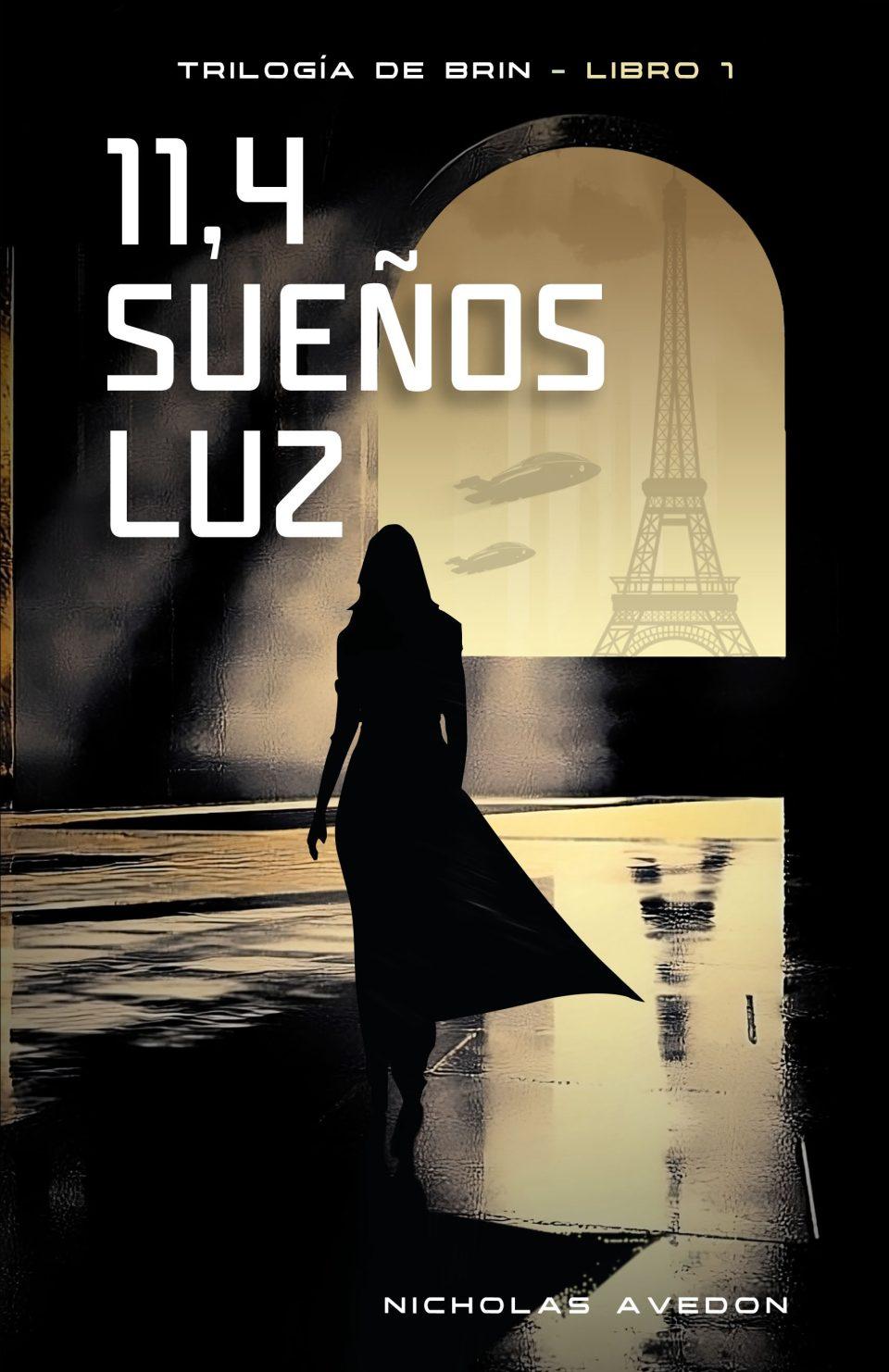

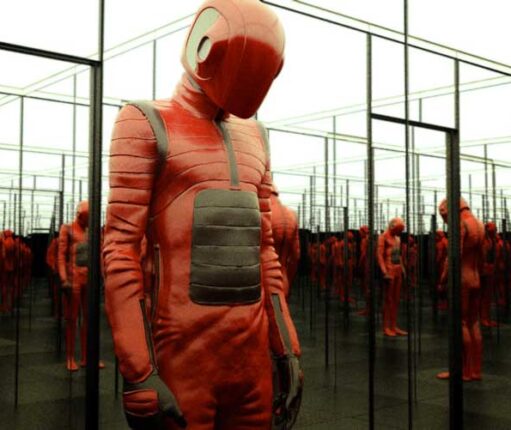
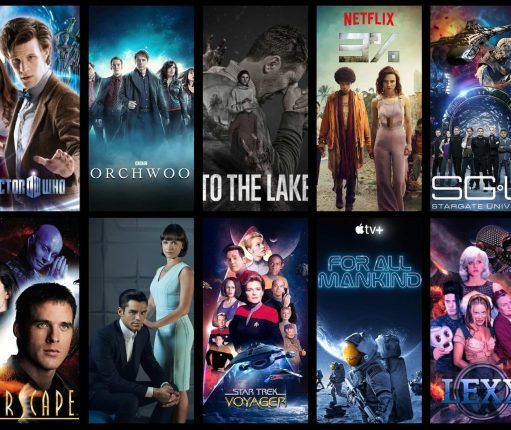

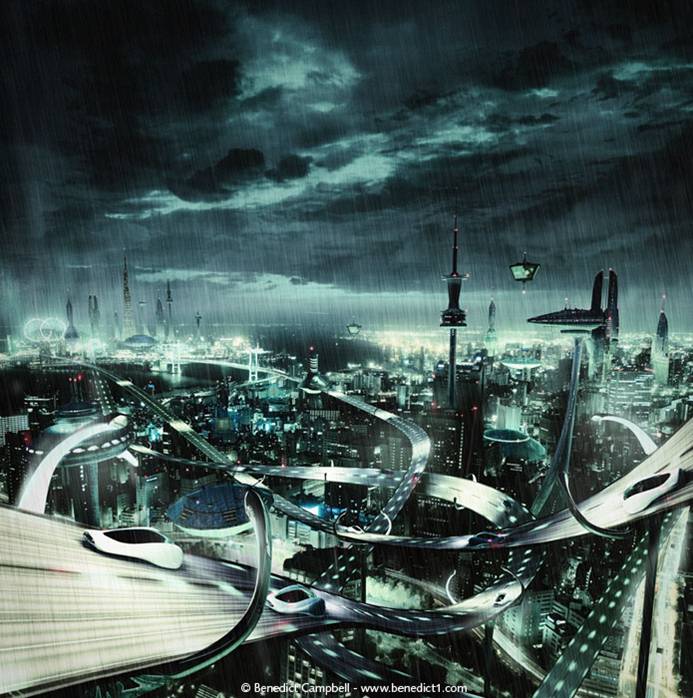
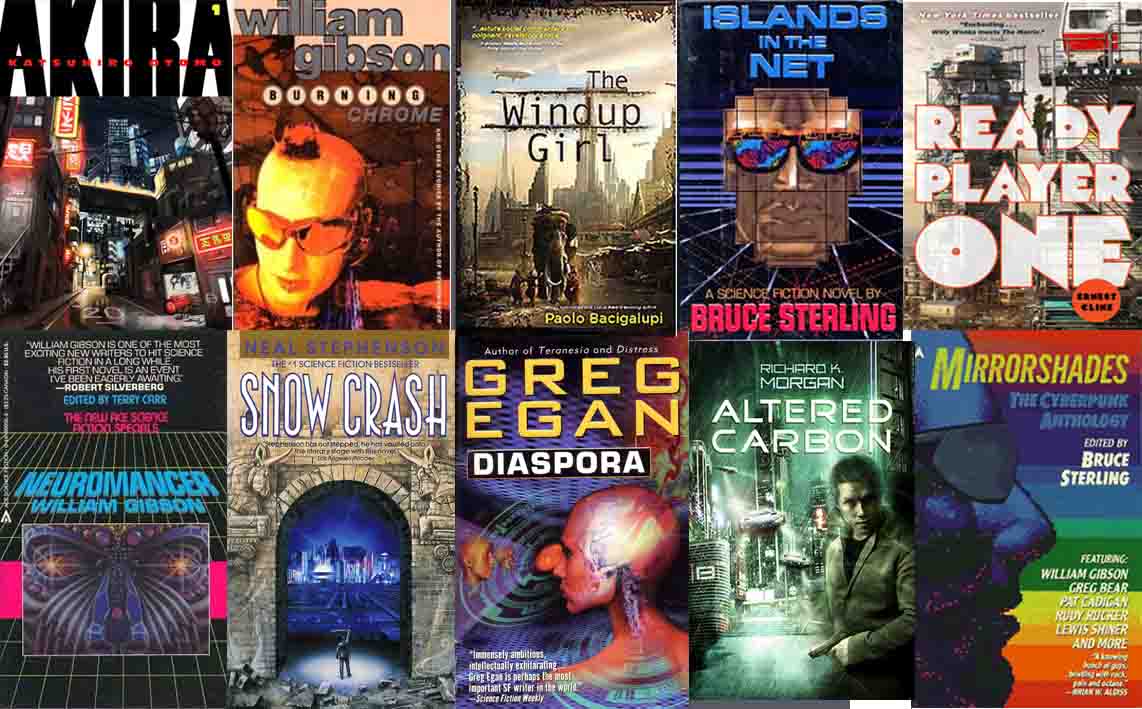
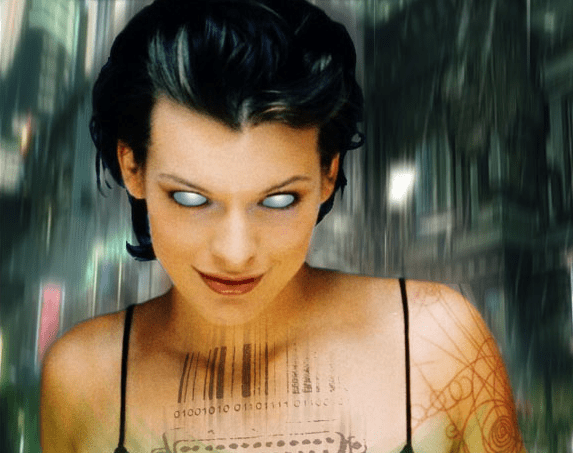
No Comments